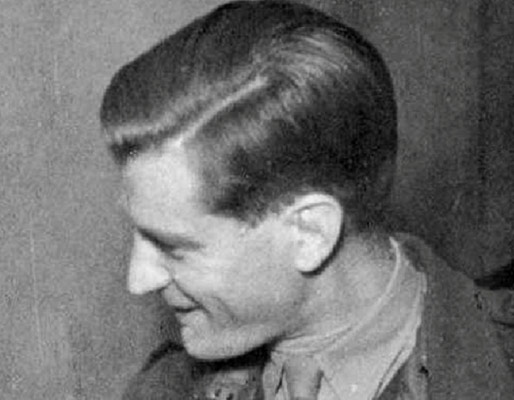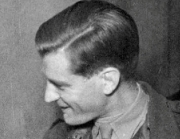Ivor Porter
During World War II, until August 1944, official relations between Romania and Britain became strained. On 10 February 1940, the staff of the British Legation in Bucharest pulled out of the country, together with several other British people who were temporary residents in the capital (news correspondents, business people who felt threatened by the Legionnaires’ attacks).
In 1940, SOE (Special Operations Executive) recruited Iuliu Maniu to its ranks, together with an English petroleum engineer called Gardyne de Chastelain who, in 1940, was the manager of ‘Societatea Unirea’ and a friend of Maniu’s and Rică Georgescu’s (director of the Romanian-American branch). The group played a significant part in the anti-German resistance operations carried out in Bucharest.

A very active SOE member, also employed by the British Legation in Bucharest, was Ivor Porter - the author of Operation Autonomous (Operațiunea Autonomous, Editura Humanitas, 2008) in which he gives a very detailed account of his time in Bucharest and his mission.
To a young man, Romania, a country so different from England - even stuck in time, one could say - was a lesson and an interesting discovery I grew very fond of, as did many others. I made friends for life with Romanian or English speakers there. The hardships before and during the War brought us closer together. Romania will remain, without a doubt, one of the life experiences which made me who I am. (interview, Oglinda literară, January 2012)
Ivor Porter arrived in Bucharest in March 1939 and took up the position of Lecturer at the University, by British Council appointment. He lived on strada Spătarului, in the house of Mrs. Arditti, who “used to have loads of English lodgers”: Mary Hartley (secretary to Archie Gibson who was a Times correspondent), Alexander Miller and Mary Vischer who worked for Astra Română, David Walker, a Daily Mirror correspondent”.
Rică Georgescu (Jockey) and Popovici’s network were arrested in August 1941. In 1943, Operation Autonomous took place. The plan was for the three agents (Ivor Porter, Colonel Gardyne de Chastelain and Captain Silviu Mețianu) to be parachuted into an area near Bucharest, with the mission of finding a way to speed up events and persuade Romania to join the Allied Powers, with the help of the political parties (especially Iuliu Maniu’s). The parachuting was supposed to happen at Ștorobăneasa, near Alexandria, on the estate of the Racottă family; on 21 December the three agents were captured in a village called Ploșca and taken to Bucharest, to the Gendarmerie headquarters at Șoseaua Ștefan cel Mare 51, where they were detained until after the events of August 1944. After 23 August 1944, Porter was invited by Rică Georgescu and his wife Lygia to live with them, in their house, at Strada Grigore Mora 14 (first floor) where Iuliu Maniu owned a flat on the ground floor, while the attic was occupied by a Russian Colonel. Later, Porter moved into a house on Strada Londra; from 1946 he joined the diplomatic service, the political section of the Foreign Office which later became a Legation, as Second Secretary; in 1948, he returned to London.

